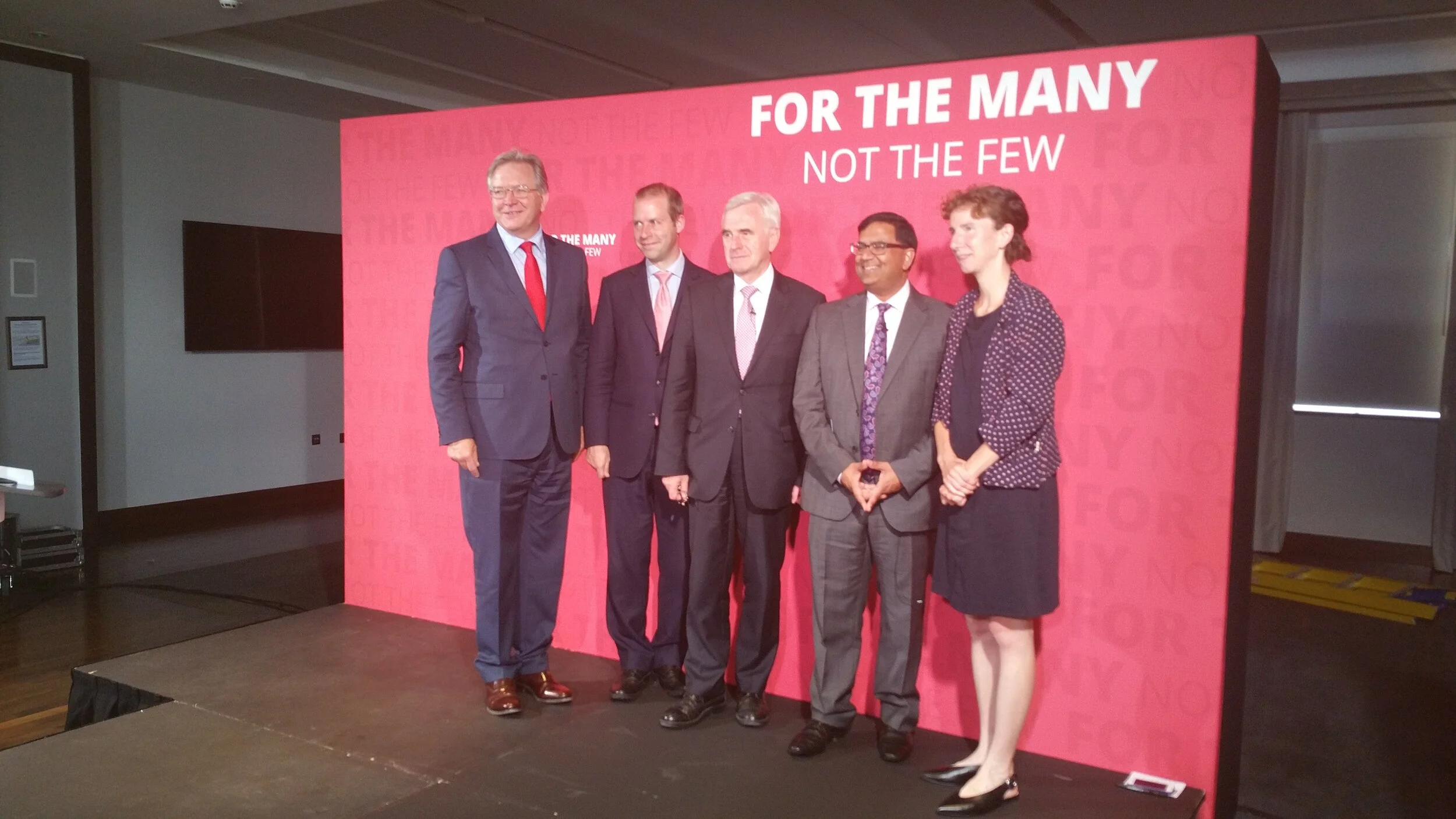"Robin Hood Tax" Report Launch with the Labour Party
Christians on the Left supports the introduction of the "Robin Hood Tax" or an FTT (Financial Transaction Tax) and has worked in Partnership with the Robin Hood Tax Campaign for many years.
Today, Tuesday July 18th saw the release of a milestone report in the campaign for an FTT that would benefit the whole of the UK. John McDonnell MP, the Shadow Chancellor was there to introduce Professor Avinash Persaud (author of the report) along with Jonathan Reynolds MP, Shadow City Minister and Chair of Christians on the Left. Daniel May-Miller and Andy Flannagan were also there from Christians on the Left to report on what all the excitement was about...
Download and Read the full, easily digestible report here. Surprisingly well written, with depth and detail on how and why the tax will work, yet understandable by almost anyone.
Brilliant 3-min Interview with the report Author:-
The Robin Hood Tax on the Today programme on Radio 4
See more on our Facebook Page including videos and interviews from the event.
REPORT:
Improving Resilience, Increasing Revenue – modernising the UK’s stamp duty on shares
Modernising the Stamp Duty Reserve Tax (SDRT)
The UK’s stamp duty on share transactions, originally introduced in 1694, is one of the oldest taxes. The existing 0.5% stamp duty on share transactions raises £3.3bn a year and is paid by all retail and pension fund investors in shares. Under pressure from the industry, the design of the tax has not kept pace with industry developments and is now in need of modernising. Labour will end abuse of the ‘market maker exemption’ that costs the Treasury £1bn a year. Labour will also widen the tax from transactions in shares to similar markets such as equity and credit derivatives and corporate bonds. These moves will add an extra £4.7bn in revenue, raising the total take to £8bn in the first year, or around £25bn over the course of a 5-year parliament.
Closing the current loophole
At present anyone who trades in equities pays the tax except those who use the market maker exemption, which includes hedge funds and high frequency traders. Those who currently qualify for the market maker exemption will also start paying the tax at a discounted rate (0.2% rather than 0.5%). The tax will be extended to those who trade equity derivatives, as well as in corporate bonds and their derivatives. The vast majority of trading in these instruments is not carried out by retail investors. Closing this loophole will raise about £1 bn. per year, taking into account reduced volume of transactions as more superfluous trades are no longer carried out. This will also eliminate destabilising high-frequency trading.
Rebutting criticisms
i) Relocation of financial business
The tax is designed so that there is no advantage from relocating. The days in which you can set up foreign bank accounts and not reveal underlying ownership are over. Those liable for the tax, either through their underlying residency or where the securities were issued will still have to pay the tax wherever they move their trades and so will have no reason to move. Those who trade in London but are not UK tax resident or are not trading UK issued securities will not be taxed and will therefore have no tax reason to move either.
ii) Impact on pensioners
There will be no change in the tax pension funds currently pay for share transactions. This is a tax on churning and so it will fall least heavily on pension funds who trade the least and most heavily on hedge funds who trade more frequently. Moreover, the tax will force those who manage the money of others to reveal the amount that they are churning their investment portfolios, leading to a reduction in churning and an increase in returns to fund members. Pension funds prefer to own underlying securities and have minimal exposure to derivatives, so extension of the tax to these instruments will not impact them materially.
iii) Cascading costs
Brokers transacting on behalf of an underlying clients will not pay the tax. Those owning taxed securities while market-making will pay 0.2%, less than half of the ordinary rate.
iv) Impact on liquidity
The liquidity that matters most is the liquidity present when there is a run on a financial market: where panicky selling leads to further selling or vice versa. High frequency traders add to these runs by trying to jump ahead, selling more and faster than others. They drain liquidity when it is needed most. The closing of the market-maker loophole that high frequency traders abuse will eliminate this behaviour, making our markets more resilient. The rise of high frequency trading has been matched by the rise of flash crashes. Reducing the scale and frequency of market crashes will bring benefits many times the tax revenues.
Read the brilliant, easy to digest full version of the report here.
Interview with David Hillman from the RobinHoodTax Campaign:
Shadow Chancellor John McDonnell MP (Centre) flanked by Shadow City Minister Jonathan Reynolds MP (Left) and report author Dr Avinash Persaud (Right)



